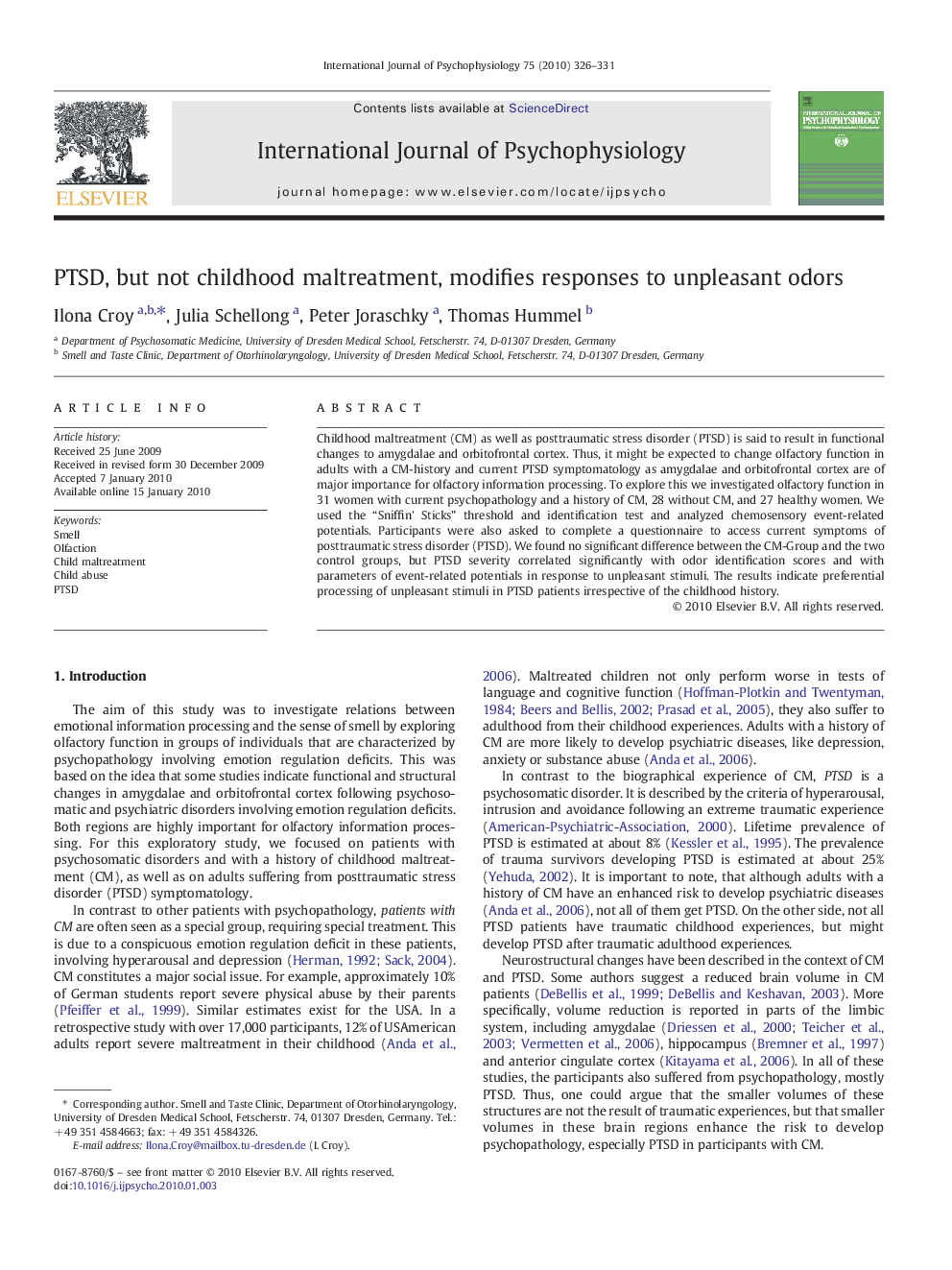| Article ID | Journal | Published Year | Pages | File Type |
|---|---|---|---|---|
| 7296313 | International Journal of Psychophysiology | 2010 | 6 Pages |
Abstract
Childhood maltreatment (CM) as well as posttraumatic stress disorder (PTSD) is said to result in functional changes to amygdalae and orbitofrontal cortex. Thus, it might be expected to change olfactory function in adults with a CM-history and current PTSD symptomatology as amygdalae and orbitofrontal cortex are of major importance for olfactory information processing. To explore this we investigated olfactory function in 31 women with current psychopathology and a history of CM, 28 without CM, and 27 healthy women. We used the “Sniffin' Sticks” threshold and identification test and analyzed chemosensory event-related potentials. Participants were also asked to complete a questionnaire to access current symptoms of posttraumatic stress disorder (PTSD). We found no significant difference between the CM-Group and the two control groups, but PTSD severity correlated significantly with odor identification scores and with parameters of event-related potentials in response to unpleasant stimuli. The results indicate preferential processing of unpleasant stimuli in PTSD patients irrespective of the childhood history.
Related Topics
Life Sciences
Neuroscience
Behavioral Neuroscience
Authors
Ilona Croy, Julia Schellong, Peter Joraschky, Thomas Hummel,
